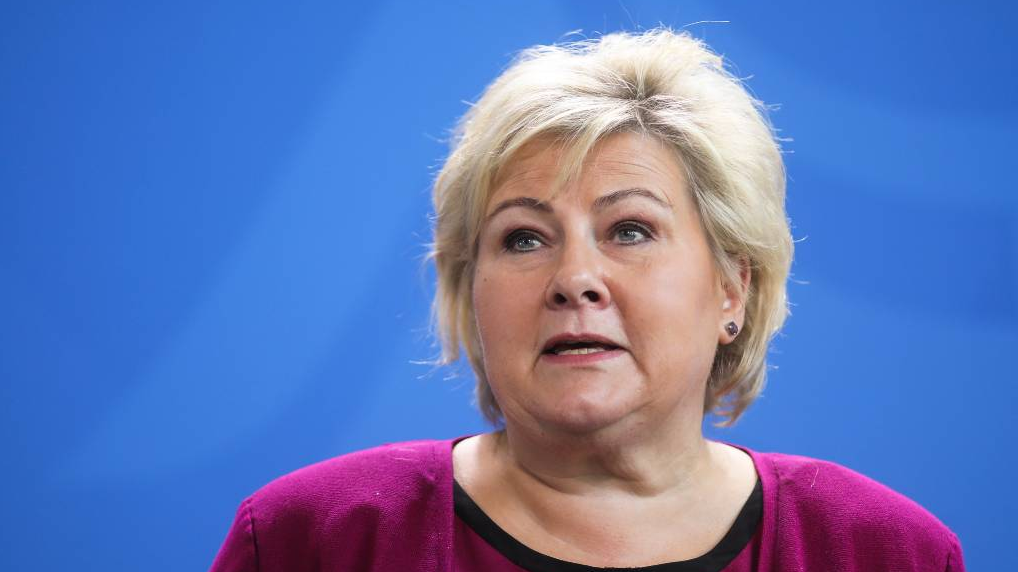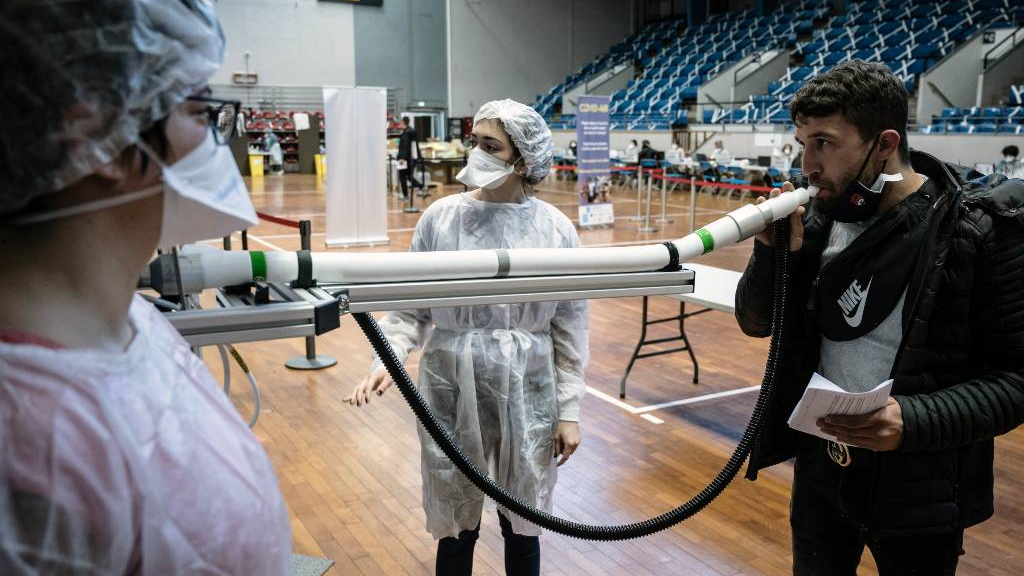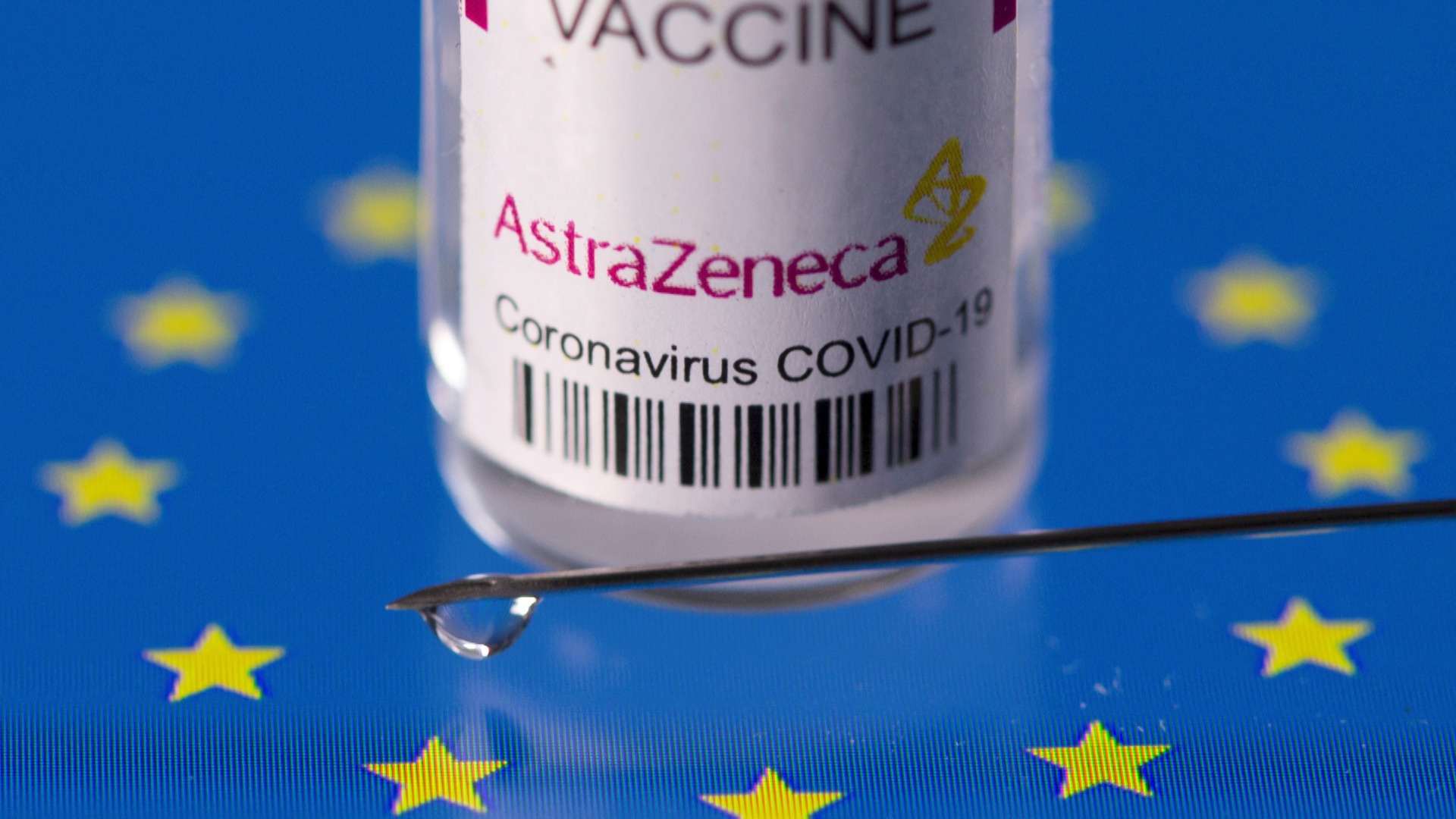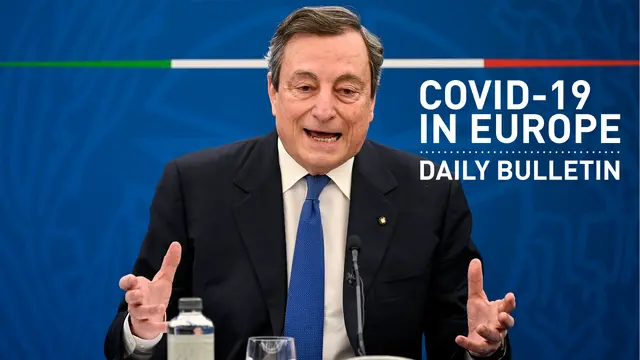TOP HEADLINES
• Germany needs to implement a new nationwide lockdown to slow the spread of infections that has caused a surge of patients in intensive care units, says Health Minister Jens Spahn: "If this continues, it will be too much for our health system."
• Norway's Prime Minister Erna Solberg has been fined $2,352 for breaking social distancing rules after organizing a family gathering to celebrate her birthday, Norwegian police said.
•** Italy's Prime Minister Mario Draghi has said vaccines should only be given to the elderly** and called for regional governments and individuals not to flout lockdown guidelines. "Stop vaccinating people who are under 60, stop vaccinating young people," he said.
• Finland plans to begin to gradually ease its lockdown measures later this month , Prime MinisterSanna Marin said. She added, however, that the spread of the virus is still severe and restrictions should not be lifted too early.
• France's top health body, the Haute Autorite de la Sante has urged people under the age of 55 who have received a first dose of AstraZeneca'sVaxzevria jab to get a different vaccine for their second shot . The HAS says that combining two vaccines poses no risks and "gives immune responses which are greater than when the same vaccine is used twice."
• Britain "depends practically entirely" on theEuropean Union for its vaccines, according to European Internal Market Commissioner Thierry Breton, as disputes continue between the bloc and the UK over vaccine exports.
• Russia's Sputnik V jab is less effective against the variant first discovered in South Africa , but the lead scientist behind the vaccine,Alexander Gintsburg, believes it is still better than other vaccines.
• **The Netherlands and Portugal are among the latest countries to limit the use of Vaxzevria **for those aged over 60 following a small number of blood clot reports – but Spain will continue vaccinating 60-65 year-olds with Vaxzevria before moving onto the 66 to 69-year-olds, the country's health ministry said.
• Researchers in Lyon, France are testing a "COVID-19 breathalyzer" to see if it can detect the virus in air exhaled , in a move that could dramatically cut testing wait times.

Norway's Prime Minister Erna Solberg has been fined $2,352 for breaking social distancing rules. /AP
ACROSS EUROPE
Trent Murray in Frankfurt
The latest data from Germany's Robert Koch Institute shows there have been 25,464 new infections recorded – the highest number seen during the third wave.
It's still unclear how much of this high number is due to late registrations from regions who stopped reporting over Easter but it is alarming nonetheless.
Meanwhile Germany's sluggish vaccine campaign is finally starting to pick up thanks to GPs being given the green light to give jabs.
Toni Waterman in Brussels
New coronavirus infections in Belgium continue to decline, dropping 25 percent in the past week compared to the previous week. But hospital admissions have hit their highest level since November. The country's vaccination program is slowly picking up steam. People with underlying health problems younger than 65 are now eligible for the shot in Brussels.
And a new report from HR and payroll company SD Worx on Friday showed that the number of people working abroad for companies in Belgium jumped 25 percent last year as coronavirus and lockdowns pushed worked online.

Researchers in Lyon, France are testing a 'COVID-19 breathalyzer' to see if it can detect the virus in exhaled air. /AFP
Rahul Pathak in Madrid
Another makeshift mass vaccination center opensits doors in Madrid on Friday
Normally the Wizink centre plays host to live music and indoor sporting events but now it's helping Spain speed up its vaccination drive.
Here, AstraZeneca's Vaxzevria vaccine will be administered to those aged between 60 to 65. Spain took delivery of 1.2 million Pfizer-BioNTech doses earlier this week, to add to more than a million Vaxzevria doses.
April is seen as crucial month for the country as nearly a fifth of all vaccines to have entered Spain have come in the last week.
Nawied Jabarkhyl in London
The UK has confirmed plans for a traffic light system to manage the resumption of international travel. Countries will be categorised as green, amber or red based on their risk levels.
Those coming to the UK from green destinations will not need to quarantine if they have a negative test result. Travelers from amber and red countries will need to go into 10 days of quarantine, the latter in government-managed hotels.
The lists will be drawn up based on four criteria – rates of vaccination and infection, variants of concern and access to scientific data and genome sequencing.
Officials say it's "too early to predict which countries will be on which list" but clarity is expected in "early May." As things stand, international travel is set to restart from May 17.
02:28

Penelope Liersch in Budapest
Hungarian secondary schools will reopen three weeks later than expected. Prime Minister Viktor Orban made the announcement on state radio Friday morning, pushing the reopening from April 19 to May 10, saying secondary students could return earlier but it was not worth it because of their graduations and would be best to return on May 10 instead.
The decision follows weeks of concerns being raised by teachers' unions and medical experts that students returning on April 19 would be too early, despite staff being vaccinated. The vaccine drive for teachers and school staff during early April would mean many won't have protection from the virus until early May.
Hungary's number of daily deaths rose again on Friday, with 285 people passing away from COVID-19 in the 24 hours before. Hospitalizations have improved by a couple of hundred, with 11,363 patients, and nearly 2.7 million people have received at least one dose of vaccine. Prime Minister Orban has spoken of plans to vaccinate 7 million people by early June, if there are enough registrations. The government will begin a campaign to encourage more people to get the jab.
Ross Cullen in Paris
The French Authority for Health (HAS) recommends that people under the age of 55 who had AstraZeneca's Vaxzevria vaccine for their first dose should have a Pfizer or Moderna jab for their second shot.
The HAS says that combining two vaccines poses no risks and "gives immune responses which are greater than when the same vaccine is used twice." The health secretary confirms the move in a breakfast media interview. Half a million people under the age of 55, most of them essential workers, have received one Vaxzevria dose.
France has passed the mark of 10 million people having had their first dose of a COVID-19 vaccine, originally a target for mid-April. On Thursday, France carried out 437,000 jabs in one day, a new record. However, France is still approaching the unwanted milestones of five million cases and 100,000 deaths.
FROM OUR GLOBAL COLLEAGUES
CGTN Europe:
The Answers Project: Are we alone in the universe?
CGTN China:
Entering global markets while in pandemic recovery
**CGTN America: **
Possible signs of COVID-19 pandemic depression in children
CGTN Africa:
Morocco's confirmed COVID-19 cases exceed 500,000
Sign up
here
to get the COVID-19 Europe bulletin sent directly to your inbox.
CGTN Europe has been providing in-depth coverage of the novel coronavirus story as it has unfolded.
Here
you can read the essential information about the crisis.
 简体中文
简体中文

